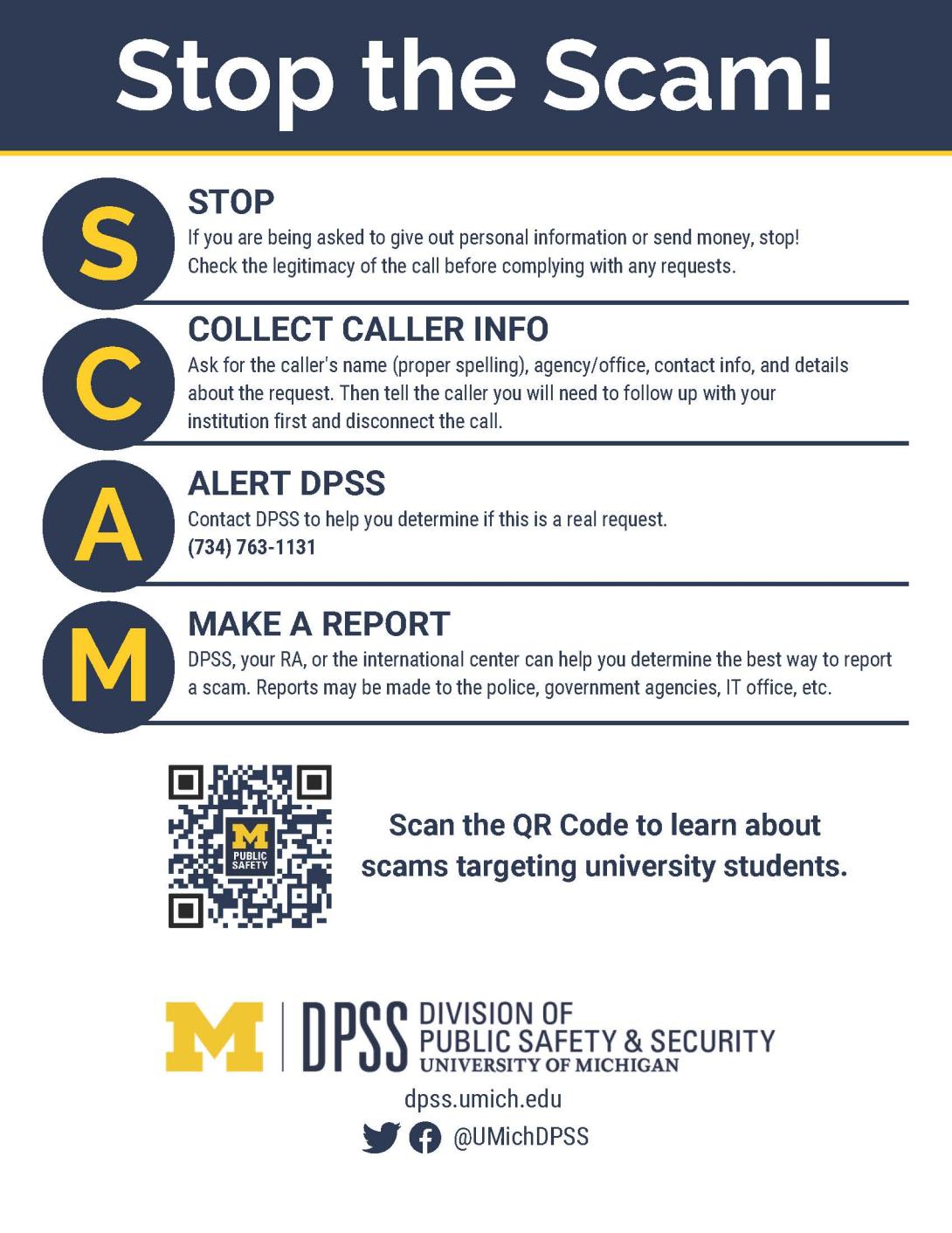November is No Scam November, so it’s time to brush up on how you can stop the scam. The best way to protect yourself from scams is to know how to spot them. Here are some of the most common scams that DPSS has seen at U-M:
- The Fraudulent Job Offer: Scammers will get students to deposit fake checks into their real bank account, and the check bounces. These scammers often fraudulently use the identities of U-M professors.
- Government Official Impersonator: This scam typically targets international students. The scammer fraudulently poses as a government official of the student’s home country or of the United States, and threatens their immigration status. This can cause students to lose hundreds of thousands of dollars in a matter of days.
- Intimate Photo Scams: Scammers will chat online with students and ask for intimate photos or videos. As soon as they are sent, the scammer will threaten the student by demanding money.
While these are the commonly used scams, it’s always important to be aware of how to spot a scam because they can come in all shapes and sizes. You can use the acronym “S.C.A.M.” to easily remember the ways to spot and stop a scam.
S - Seems too good to be true
C - Contacted out of the blue
A - Asked for personal details
M - Money is requested
If you think you’ve spotted a scam, follow these steps:
- Check the legitimacy of the call before complying with any requests.
- Collect the caller’s information by asking their name (proper spelling), agency/info, contact info, and details about the request. Then, tell the caller you will need to follow up with your institution first and disconnect the call.
- Contact DPSS by calling (734) 763-1131to determine if this is a scam. Report the scam. DPSS, your RA, or the International Center can help you determine the best way to report a scam. Reports can be made to the police, government agencies, IT offices, and other offices on and off campus.
Students can protect themselves. Check out U-M's Safe Computing tips for safeguarding your online identity or the DPSS website for more information. If you have been threatened or believe you have given money to a scammer please contact U-M DPSS at 734-763-1131.

